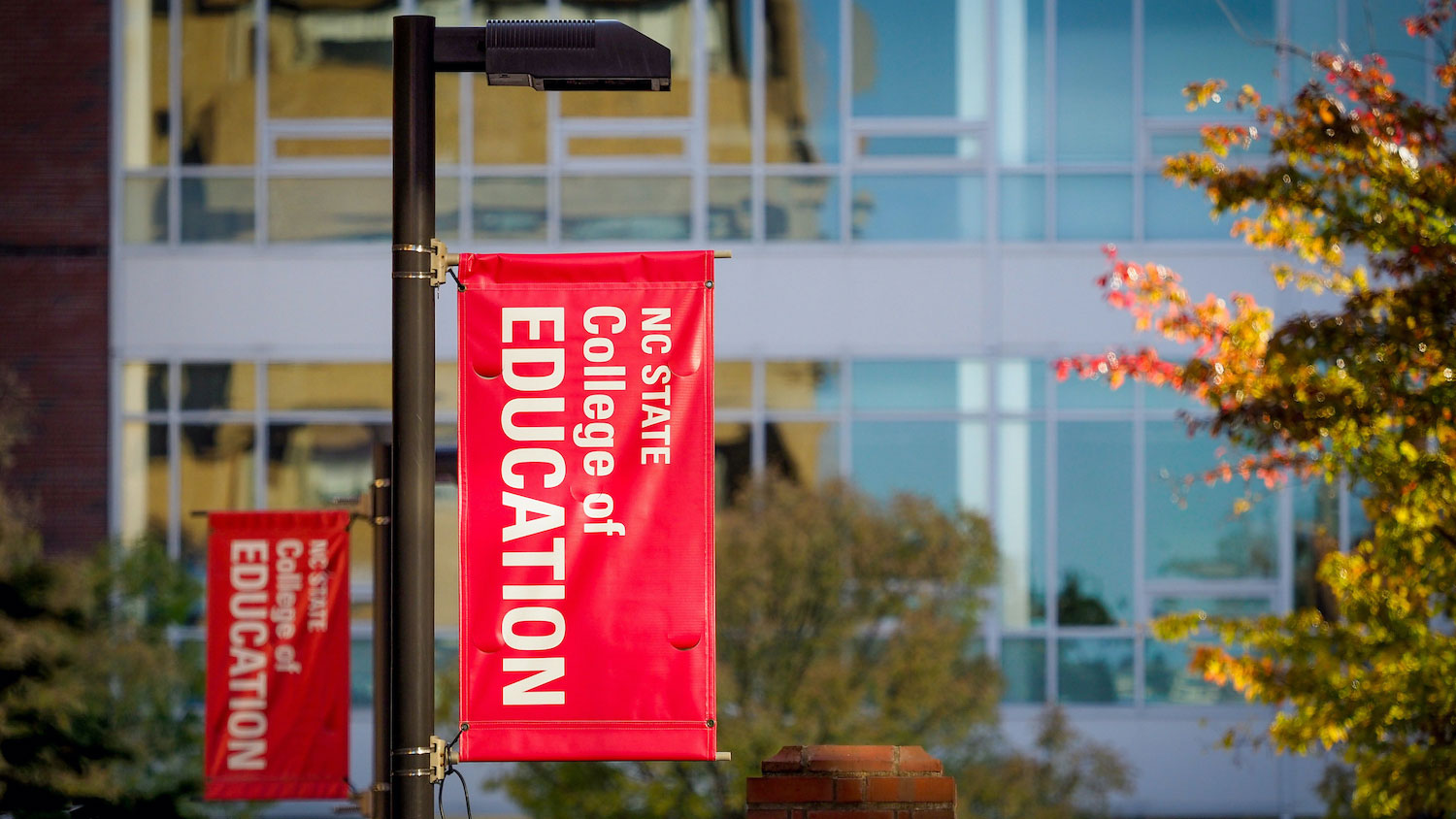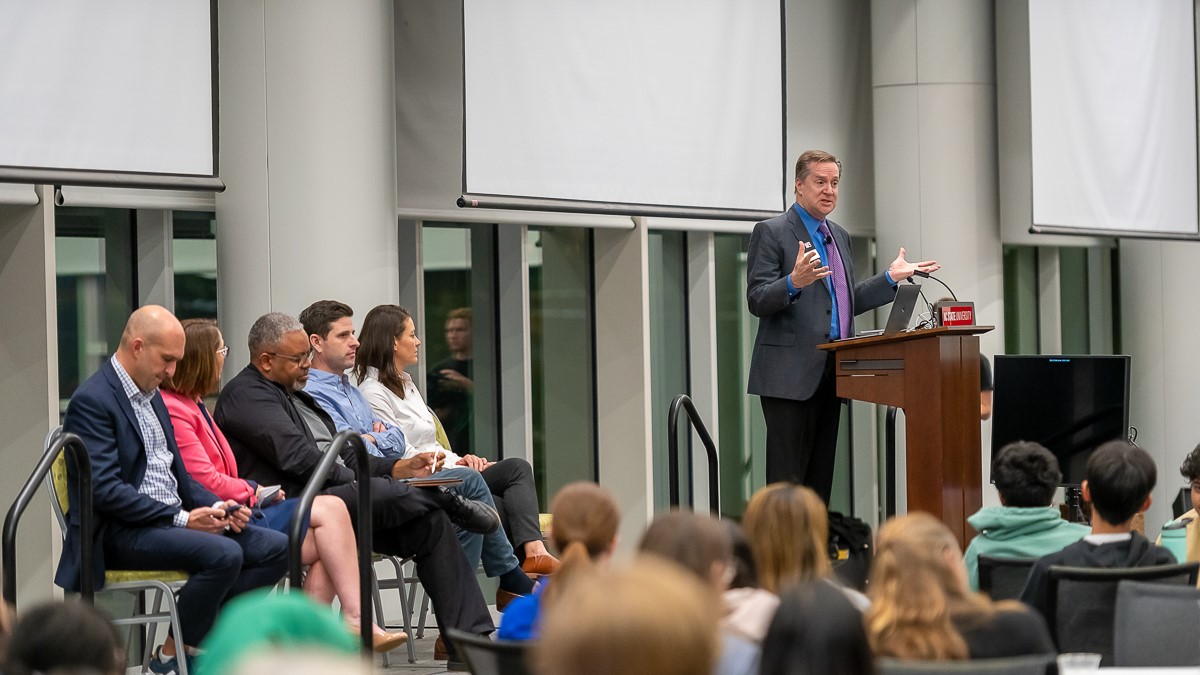It Still Takes a Village
A new scholarship is helping an increasingly diverse group of educators prepare for increasingly diverse classrooms. Students all across North Carolina will benefit as a result.

The donors of one of NC State’s newest scholarships weren’t expecting a podcast to change their lives, but that’s just what happened. Listening to an episode of Malcolm Gladwell’s Revisionist History opened their eyes to an injustice that took place in the wake of U.S. school desegregation and is still impacting classrooms all across the nation.
Now, the creators of the Darla Buchanan Scholarship are hoping to undo some of that damage by helping North Carolina’s future educators afford to Think and Do. They, in turn, hope to change lives as well.
Episode 3 of Revisionist History’s second season, “Miss Buchanan’s Period of Adjustment,” featured a reading of Darla Buchanan’s termination letter. Buchanan was a Black teacher in Topeka, Kansas, who was fired at the end of the 1952-53 school year, the year before the U.S. Supreme Court ruled on Brown v. Board of Education of Topeka. As her school superintendent put it in the letter: “If the Supreme Court should rule that segregation in the elementary grades is unconstitutional, our Board will proceed on the assumption that the majority of people in Topeka will not want to employ Negro teachers next year for white children.”
In all, more than 40,000 Black educators across the nation lost their jobs as an unintended consequence of the Brown v. Board verdict. Principals were similarly impacted. What had once been a prestigious career choice for Black adults became inaccessible for many would-be educators and leaders, and the number of teachers of color in the U.S. is still woefully low. Seeking to highlight this loss, the woman reading the termination letter on that podcast was none other than Linda Brown Thompson, daughter of the Brown v. Board case’s titular Oliver Brown.
Needless to say, the donors — who have chosen to remain anonymous in order to keep the scholarship’s focus on Buchanan’s memory and on its purpose — found the episode very moving.
“It was kind of a shock to us that desegregation had that kind of impact,” one of the donors said. “Since then, with the reading that we’ve been doing [including and especially Michele Foster’s Black Teachers on Teaching], we realized that was an across-the-board, across-the-nation firing of about half of the Black teachers in America over the course of about 20 years, because it took about that long for desegregation to occur, particularly in the South.”
“To realize that these things were done in my mother’s adult lifetime was really shocking,” another donor said.
As segregated schools closed, losing so many Black teachers had wide-ranging implications for generations of students — from removing mentors to lessening an important sense of community, as Foster’s book details.
The donors recently established the Darla Buchanan Scholarship in NC State’s College of Education to address that urgent need for a more diverse teaching and administration staff in North Carolina and beyond. The fund will provide need-based financial assistance to students pursuing an undergraduate degree in elementary education, with preference given to those who have demonstrated an interest in equality, diversity and/or social justice within education by participating in community activities, social groups, student clubs and/or organizations that support this focus.
“This new Darla Buchanan Scholarship is an important recognition of the urgent need for more highly qualified educators, especially more teachers of color and more culturally responsive educators who work in communities with greater needs but fewer resources.”
“This new Darla Buchanan Scholarship is an important recognition of the urgent need for more highly qualified educators, especially more teachers of color and more culturally responsive educators who work in communities with greater needs but fewer resources,” said College of Education Dean Mary Ann Danowitz. “It’s also incredibly important to have a scholarship housed in our college named after Darla Buchanan, whose legacy will serve as a powerful reminder of the beginning of the teacher diversity gap and why it’s more critical than ever for our college to lead the way in improving education and in preparing educators who are part of the solution in addressing today’s challenges.”
The donors hope the Darla Buchanan Scholarship will repair some of the damage done to the educational system by making it more inclusive for educators, which will in turn benefit those they teach. For example, studies have shown that having even one Black teacher during elementary school can greatly improve the high school graduation rate of Black students, as well as increase the percentage of Black students who become part of academically gifted programs.
The initial $20,000 gift establishing the Darla Buchanan Scholarship will support one student. The College of Education hopes additional donors will contribute to the Darla Buchanan Scholarship so it can benefit other aspiring educators, and that similar funds will be created in honor and memory of other educators who have strived to create a better classroom for America’s children — regardless of their race or ethnicity.
Scholarships of this type are helping the College of Education further its mission to educate and empower the next generation of North Carolina teachers. NC State is one of the largest producers of teachers in the state, and thanks to Darla Buchanan and her memory, that talent pool will soon become even more diverse. North Carolina, the United States and the world will reap the benefits for many years to come.
“As a land-grant college of education, we have long been focused on advancing equity and increasing opportunities for success in education,” Dean Danowitz said. “However, as more racial injustices have come into broad public view, our college has reaffirmed and intensified its unique responsibility and moral obligation to build more diverse, inclusive and supportive schools and communities. I am grateful to the donors of the Darla Buchanan Scholarship for helping make it possible for us to fulfill our land-grant mission.”
- Categories:


